Why are we so opposed to seeing Hero Alom in politics?

Among the six parliamentary constituencies where by-elections were held on February 1, two drew particular attention: Bogura-4 (Nandigram and Kahalu upazilas) and Bogura-6 (sadar upazila). The reason? Ashraful Hossain Alom, better known as Hero Alom, the internet celebrity with a massive fan following, contested the by-polls from these two seats as an independent candidate.
Journalists in Bogura received numerous calls from all over the country, even from journalists who work for international media outlets and agencies since the morning of election day. The only question they asked was: is Hero Alom becoming a member of parliament? The results, when announced, revealed that the polls had ended with a low turnout, and Hero Alom was defeated in both seats.
In Bogura-4, he lost by 834 votes to the candidate from Jatiya Samajtantrik Dal (JSD), an ally of the ruling Awami League. (Awami League supported the JSD candidate and did not nominate their candidate in Bogura-4).
On the election night, Hero Alom held a press conference where he rejected the election results and alleged result manipulation. "Educated people would be forced to call illiterates like me 'Sir.' That's why they don't want to accept me. They could not accept my victory… That is why the election officials changed the results," he claimed.
This entire saga raised many questions: why are people so interested in Hero Alom? Why did they vote for him? It is evident that people wanted to see him in parliament. Is he eligible enough to represent people in parliament?
There is no legal bar for him to contest any election in Bangladesh. According to Article 66 of the constitution, a Bangladeshi citizen who is at least 25 years old can be a member of the parliament. The Election Commission accepted Hero Alom's candidature following the laws of the land.
After the election results were announced, many said Hero Alom may have lost the polls, but he won against elitism.
Hero Alom does not speak proper Bangla. He does not have formal education. He makes low-quality music videos and sings Rabindra Sangeet in a "distorted" way. These are the reasons that make him the subject of criticism and trolling on social media every day. But does he have any allegations of corruption, loan default, money laundering, illegal land grabbing, stealing relief items from the poor and needy against him?
Alom himself said people from the elite, upper classes could not tolerate that someone like him was rising up from the working class, that is why they opposed him so much.
A former police chief, during a talk show, did not want to speak about Alom after the election results were announced on February 1. When the moderator asked him repeatedly, he said he did not consider Alom a political figure. To him, Hero Alom was just a Facebook celebrity.
This brings me back to the question of Hero Alom's popularity.
I asked voters in Bogura why people voted for Hero Alom. In response, many said they voted for him because of emotional reasons, while some others voted for him out of frustration with the main political parties.
They said the MPs who had been elected from the mainstream parties before did not prioritise the people's interests or work for their well-being. They promise big things before the elections, but forget to deliver once they win. One cannot approach an MP easily with any problem. In contrast, Hero Alom is simple, honest and approachable, and a better option than others, according to many young voters.
During his campaign for the by-polls, Hero Alom admitted that if he won, he would only get seven to eight months' time in parliament, and so he would not be able to do much for the people. But he would make sure to do what most urgently needed for the people in the time he would get. Voters liked this simple confession. They can relate to him, seeing him as one of their own.
If democracy means the rule of people, for the people and by the people, and if the people want to see Hero Alom in parliament, representing their interests, why are we, the educated class, so opposed to the idea?
Come to think of it, why are good people moving away from politics? Why are people turning away from big political parties? Why did less than 24 percent of voters cast their votes in the Bogura-4 and Bogura-6 by-polls? Why are major political parties going bankrupt? Why do ordinary people not want to participate in political activities nowadays? Before trolling Hero Alom for trying to become an MP, these questions need to be answered.
In Bangladesh, after the 90s, democracy has been under constant stress, with questionable elections and rampant irregularities committed by elected public representatives. In this situation, if people want to rely on candidates like Hero Alom to uphold their interests, where is the problem?
Mostafa Shabuj is the Bogura correspondent of The Daily Star.
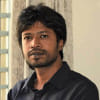
 For all latest news, follow The Daily Star's Google News channel.
For all latest news, follow The Daily Star's Google News channel. 
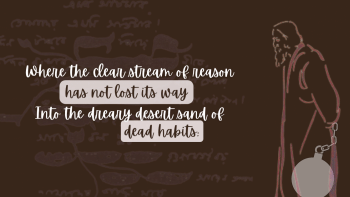


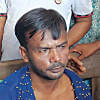
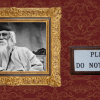

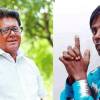
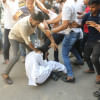


Comments